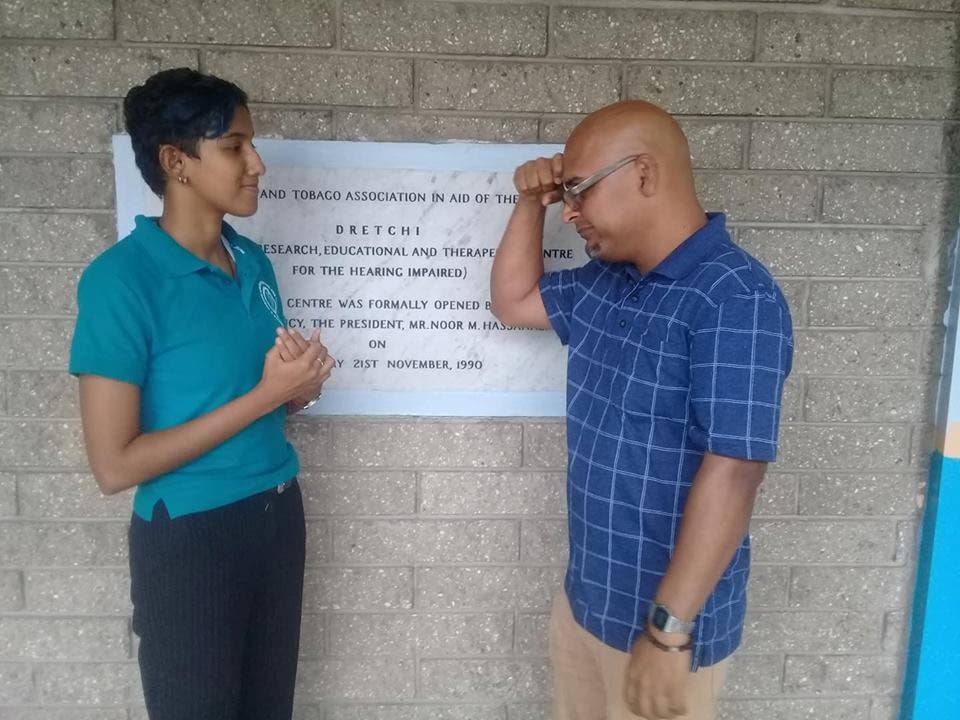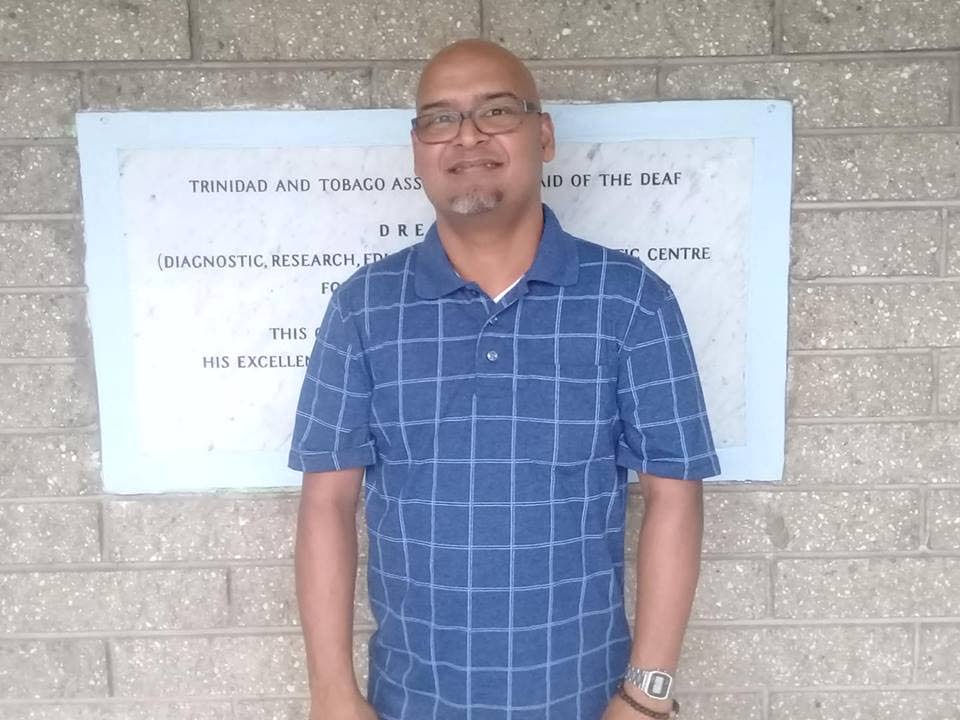Sign for the times

IMAGINE an island where the people are deaf and blind and have to use a tactile form of sign language. This was one of the experiences Ian Dhanoolal had during his research of sign language in the region.
Sunday Newsday spoke with him via an interpreter last week at the TT Association for the Hearing Impaired (TTAHI), Port of Spain where he is a director.
On International Week of the Deaf, he said more people were now aware of sign language and the public was becoming more interested. He added having more people who can sign would ease communication and allow the deaf to have more access and assist the community.
Dhanoolal was born fully deaf and attended the Cascade School for the Deaf, did the common entrance exam (now secondary entrance assessment) and went into mainstream schooling at South East Port-of-Spain Secondary School.
He said while Cascade School for the Deaf was fine he had a lot of problems at South East because there was only one interpreter for five deaf children.
"We were missing out on a lot."
He received passes in three CXC subjects but failed English because he had problems with grammar. After secondary school he decided to try a deaf school in the US and went to the School for the Deaf in Atlanta, Georgia. Dhanoolal had a limited visa and had to return to Trinidad. He volunteered to work at the Agape Deaf Centre teaching computer and sign language to the smaller children. He also learned craft and began making jewellery and started a small business.
Then the University of the West Indies (UWI) invited him to teach their sign language programme part time. While teaching at UWI he noticed many students believed there was just one sign language and he decided to do research in the Caribbean on the variations of sign language. He pointed out in TT there is the Trinidad and Tobago Sign Language and one word could have different meanings just like in English.
"As (speaking) people have accents sign language has the same thing."

In his research, he has experienced different sign languages and different signs indigenous to the country. He said most of the Caribbean countries use American Sign Language (ASL) but have specific terms for their different celebrations, foods and festivals.
He recalled a recent visit to Bay Islands, Honduras where he met a community of deaf and blind people who communicate using touch. He said their sign language was a merger of ASL and their own creative signs.
Dhanoolal said he wants to teach the students at UWI to become interpreters.
"In Trinidad and Tobago we need more interpreters. Skilled interpreters."
Asked why there was a dearth if interpreters, Dhanoolal said there were a lot of people who may have an interest but do not practice and others learn and want to be interpreters but do not socialise with the deaf. He is also president of the NGO Deaf Empowerment and Advancement Foundation (DEAF) and added his organisation also has an initiative to train interpreters. DEAF will also work with We Care Deaf Support Network to work with children of deaf adults, who grow up signing and speaking, and teach them to become interpreters.
Asked to compare the services provided for the deaf in TT to other Caribbean countries Dhanoolal said he found them similar to this country.
"Same challenges with education, lack of interpreters."
Dhanoolal said sign language should be taught at the primary school level as this would help to better socialise the deaf and the hearing children and some of the hearing children may grow up to become sign language interpreters. He also reported on two TTAHI initiatives: changing the name of the association from "hearing impaired" to "deaf and hard of hearing" to reflect the culture it represents; and evening classes for deaf adults.
Dhanoolal also stressed the need to have deaf leadership in organisations.

Comments
"Sign for the times"